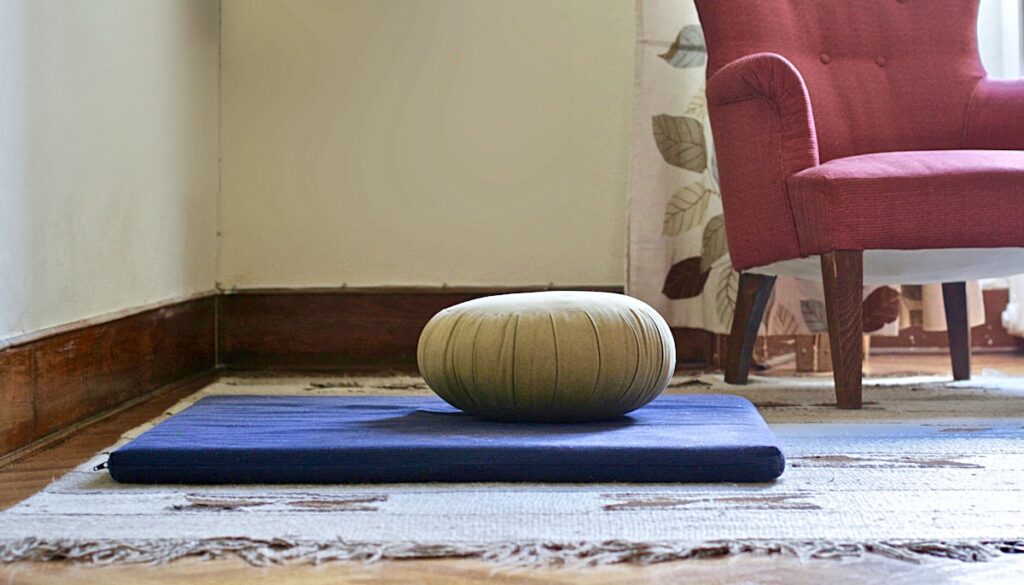

Healing Your Attachment Style: It's Never Too Late
Hello from my little corner of Harley Street,
Pouring rain in London today, and I'm sitting here with my second coffee thinking about all the conversations we had in my therapy room this April. One theme kept surfacing over and over: attachment styles – particularly that tricky "disorganized attachment" that leaves so many of us feeling lost in relationships.
So many of you shared your worry that these patterns are permanent – that once anxious, always anxious; once avoidant, always avoidant. I've seen the heaviness in your eyes when you've asked, "Am I just stuck like this forever?"
The short answer? Absolutely not.
If you've got a moment (and maybe another coffee), let me share what I've witnessed countless times in my practice – and honestly, in my own life too.
Most of us didn't get everything we needed growing up. That's not about blaming parents – it's just being human. But those early relationship wounds leave their mark: maybe you feel that gnawing anxiety when someone gets close, or perhaps you've mastered the art of keeping people at arm's length without even realizing it.
These patterns have roots in our attachment style. But here's what gives me hope every single day in my practice: these patterns can change. I've watched clients transform their relationship landscapes entirely. It takes work – real work – but it's possible.
Remember that formula we've talked about in our sessions? Let's revisit it:
AWARENESS → ACCEPTANCE → ACTION
Here are five practices I've seen make the biggest difference:
1. Stand in Your Worth (Even When it Feels Impossible)
Before you try to "fix" anything, take a breath. You are worthy of love and belonging exactly as you are right now. This isn't just feel-good fluff – it's the foundation of secure attachment, and it grows stronger when you practice being on your own side.
For my anxiously attached folks – this helps quiet that voice saying you're only lovable when you're in distress. For my avoidants – this builds trust that you're worthy of closeness, even when it feels terrifying to let others in.
Some gentle ways to practice:
- Talk to yourself like you would to a dear friend, especially when you're hurting
- Set boundaries that honour your wellbeing (yes, healthy connections need boundaries!)
- Jot down what you genuinely like about yourself – silly, serious, whatever comes up
- Recall moments when someone "got" you, really saw you
- Whisper to yourself when things get rough: "I'm on my own side today"
2. Name What was Missing (With Kindness, not Blame)
Healing starts when we can tell ourselves the truth about our early relationships without getting stuck in blame. This isn't about creating villains – it's about making sense of your story with compassion.
Ask yourself:
- What did little-you desperately need that wasn't consistently available?
- How do those old hungers show up in your relationships now?
- When things get close, what's your default move – clinging or running?
Creating this honest narrative loosens the grip of old pain. It helps you see your patterns for what they really are: brilliant adaptations that helped you survive tough circumstances – not character flaws.
3. Catch the Small Moments of Connection (They're Everywhere)
We're wired to notice danger, not safety. But those fleeting good moments in relationships? They're the building blocks of secure attachment.
The cashier who really smiles at you. The friend who remembers something you mentioned weeks ago. Your partner's hand brushing yours while watching TV.
For these moments to rewire your brain, you need to metabolize them:
- Slow way down. Stay with the good feeling for 10, 15, even 20 seconds
- Notice where you feel it in your body – maybe warmth in your chest, relaxation in your shoulders
- Let it sink in, like you're drinking it up
These tiny practices, repeated daily, literally reshape your emotional brain. They build new neural pathways of security that gradually replace the painful old ones.
4. Seek Out Relationships That Feel Like Breathing
Healing happens in relationship with others. One of the most powerful things you can do is purposefully spend time with people who feel steady, respectful, and kind – even if those connections aren't particularly deep yet.
Start small. Maybe it's:
- More coffee dates with that friend who never makes you feel like you're "too much"
- Getting to know the colleague whose calm presence feels good to be around
- A regular check-in with your therapist (yes, I'm biased, but therapeutic relationships count!)
- Even brief chats with that neighbour who always seems genuinely interested
Ask yourself: Do I feel seen here? Can I breathe easily around this person? Do they respond to me with consistency?
These experiences slowly counteract old beliefs about what relationships have to be like.
5. Tiny Steps, not Giant Leaps
Don't expect yourself to transform overnight or suddenly become fearless in relationships. This is about taking small, manageable steps that gently expand your comfort zone.
If you tend to keep people at a distance:
- Try holding eye contact a beat longer than feels comfortable
- Share something personal (just one layer deeper than usual) with someone safe
- Let someone help you with something small
If you tend toward anxious attachment:
- Practice soothing yourself for five minutes before reaching out when triggered
- Turn a clinging complaint ("You never call me") into a direct request ("I'd love to hear from you more regularly")
- Give others a little more breathing room while reminding yourself space doesn't equal abandonment
The nervous system learns best through consistent, small signals of safety. Each tiny act of openness becomes another brick in the foundation of secure attachment. Over time, those tiny shifts create profound change.
You deserve relationships where you don't have to exhaust yourself chasing or protecting. And step by step, you can build them.
If you'd like to discuss any of this personally, my door is always open. Our team at London Trusted Therapy Harley Street is growing – we now have specialists in trauma, neurodiversity, psychosexual health, and relationship therapy who contribute to these monthly reflections.
Quick housekeeping: if you'd prefer not to receive these monthly notes, just let me know and I'll remove you from the list. I only write to my carefully curated group of past and present clients because I believe in maintaining real connection in our increasingly disconnected world.
Exciting news : our website launches fully in May, with consulting rooms now at Harley Street, Chancery Lane and Liverpool Street. We see clients both in-person across London and remotely worldwide, working with individuals, couples, families, groups and organizations.
What would you like to read about next month? Our team would love your input !
Wishing you moments of genuine connection this weekend,


